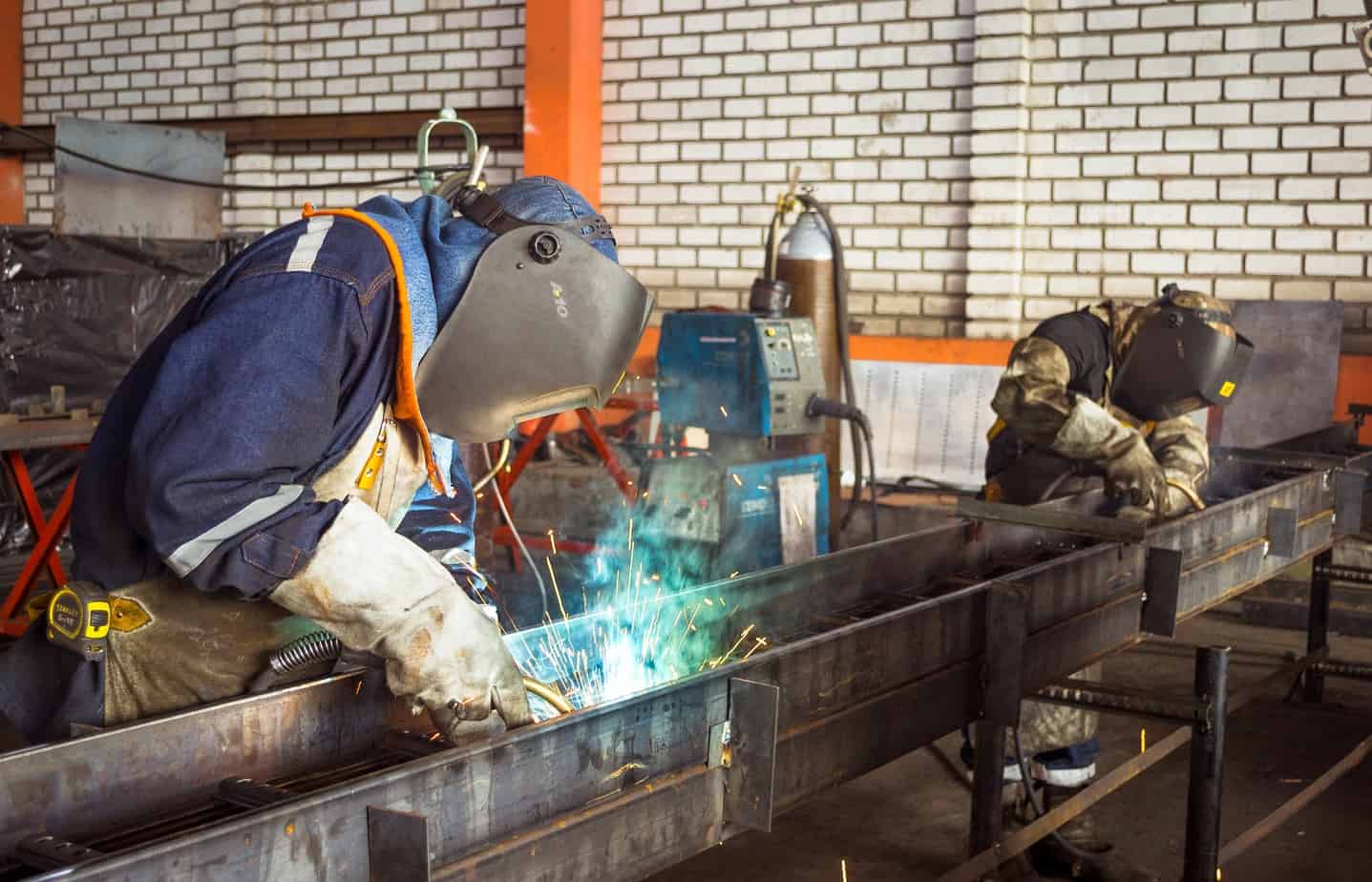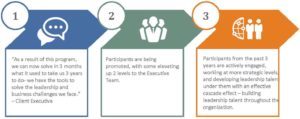1. Put Your People Above Your Projects; Cultivate Them with Empathy
Multi-tasking is a typical characteristic of a good manufacturing plant leader at any level.
Plant leaders juggle so many priorities and have an endless list of responsibilities. But, from our experience, the ones who make listening to, really hearing, and managing, PEOPLE their top priority have the most productive teams.
Countless RIGHT MANAGEMENT GREAT LAKES manufacturing clients tell us that the best managers in their organizations have decided their #1 role is to facilitate the success of each individual working with them. And often, those managers rise from the ranks, and from the same team on which they have worked. So, they understand what that success entails, and what it takes.
Rather than spend the lion’s share of time with other leaders, in endless meetings, the most effective leaders spend time with their teams — understanding each individual job deeply; observing current conditions/situations and forecasting probable future changes; noting how the jobs transform on an ongoing basis; clearing obstacles; and coaching team members through new opportunities, changes, and challenges.
To do this effectively involves great leaders respecting each team member’s individual style and emotions.
Different emotions may require different leadership approaches, and it is a great leader’s response to negative emotions that is crucial to the health of a team. Negative things are going to happen. We are human. People experience personal losses, failures, disappointments and confusion. Great leaders empathize with these inevitabilities. They acknowledge the legitimacy of feelings. While preserving healthy boundaries, great leaders listen, and summarize the options that team members might consider as they overcome barriers. Above all, great leaders quietly show they care by truly hearing their colleagues.
This may sound time-consuming, but it’s like going to the doctor for an annual check-up. Doing it might prevent major surgery later. When a caring and clear foundation is in place, team communication is far more agile, direct, and productive. Changes don’t blindside the team. Expectations are well-defined and consistent. Essentially, team members are inspired because leadership is working for the team. Team members feel unified, motivated, and collaborative.
2. Master the Behavioral Fundamentals and Habits First
While the trivial but fun things that recognize and reward team members (birthday cards, meeting snacks, social gatherings, small surprises) are all great, they should not take the place of what RIGHT MANAGEMENT GREAT LAKES calls “the fundamentals” of efficient leadership.
Everyday leaders behave consistently, every day, if they want high performing teams.
Great leaders “model” the behavior they want all team members and potential new leaders to also embrace.
- They show up to meetings on time because they respect everyone’s busy schedules, and the team’s mission.
- They don’t abruptly reschedule meetings, at the last minute, without a clear explanation and a commitment to not do it, again.
- They don’t assign unrealistic deadlines, which are impossible to meet.
- They keep their promises.
- They don’t ask any team member to do something they would not do, themselves.
- They give credit to everyone else on their team, publicly and privately, when good things happen, and goals are achieved.
- They are quick to apologize when they make a mistake, and they ensure that when they apologize, they do it publicly, if the error is a public one, or has public consequences.
- They praise efforts, before praising outcomes. Great leaders know that by only recognizing outcomes, the challenging work involved in achieving them is minimized, and the praise can be demotivating. By praising efforts, the great leader “doubles down” on empathy; shows his/her deep understanding of team challenges; reinforces positive behavior; and creates a blueprint for success.
Sometimes every leader must refuse a team member’s request. When a great leader has to say “no,” to a request, it is not done abruptly. The decision is made with deliberation and is backed up by data. It is accompanied with a reasoned, logical explanation, and (ideally) with suggestions for the future.
A great leader recognizes how hard it might be for the team member to make the request and acknowledges that. This requires that the leader understand the root of the request. And it is an ideal opportunity for the leader to learn even more about his/her team member, and potentially brainstorm new and innovative paths to achieving the end result of the request.
3. Great Leaders Don’t Just Say It; They Do It
Platitudes are the language of mediocre leaders. How often have we all heard the following from leaders in our organizations?
“I am always open to current ideas!”
“I want you to feel comfortable giving me feedback!”
“I want to find ways for you to grow in your career!”
In RIGHT MANAGEMENT GREAT LAKES’ experience, these phrases are never less true than when they are just spoken but undemonstrated. Great leaders don’t need to say these things. Instead, they live them.
- Rather than saying, “I am always open to current ideas,” a great leader will work through an idea with the team to assess its feasibility.
- Rather than saying, “I want you to feel comfortable giving me feedback,” a great leader creates a framework and culture in which all team members can feel comfortable providing candid opinions and the team can freely engage in debate around ideas and plans.
- Rather than saying, “I want to find ways for you to grow in your career,” a great leader entrusts new challenges to team members; offers them growth and educational opportunities; and guides them along their unique paths.
Mouthing empty platitudes may help a mediocre leader feel better, but it is only action that helps an overall team, an organization, or a group of people.
RIGHT MANAGEMENT GREAT LAKES can help. Great leaders make great teams, and great organizations. We help your high potential front-line supervisors evolve into the great leaders you need. Check out our POWERLEAD program, through which we supply skills that help mold great leaders of the future. We create everyday leaders. Every day.






